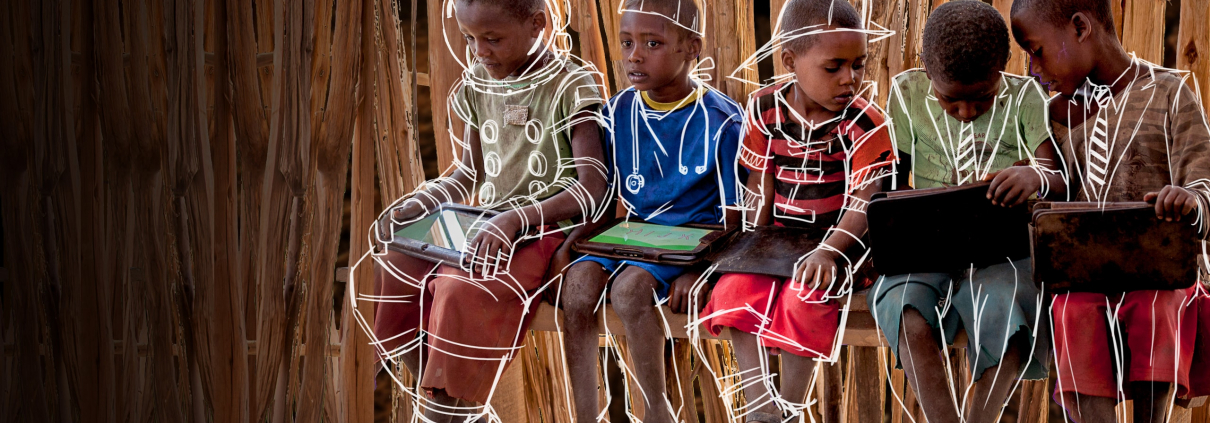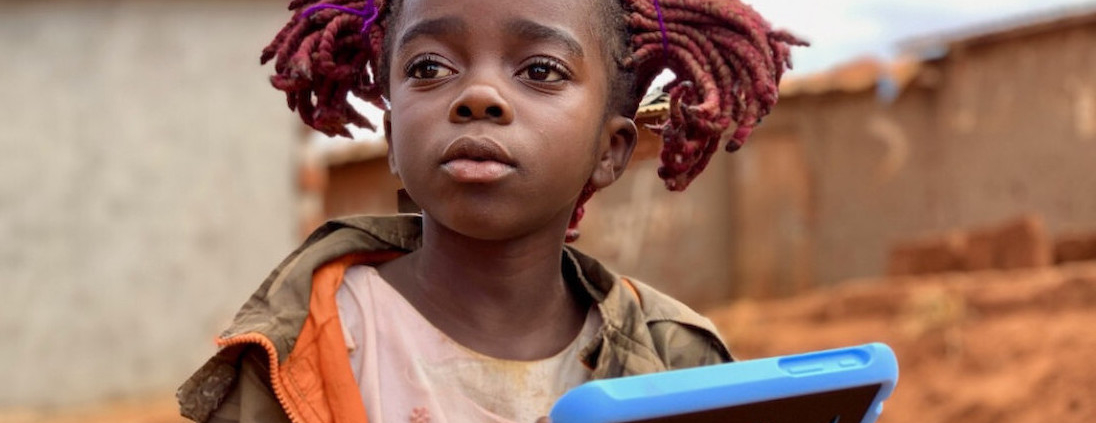Educational Interventions
Acquiring elementary literacy and numeracy skills is a basic human right. Despite global efforts to increase access to primary school education, 330 million children of primary school age are unable to read and do basic mathematics. This results in social and financial dependency and vulnerability, negatively impacting on a population’s health and wellbeing and a country’s potential for economic growth.
In response to this, the University of Nottingham’s School of Psychology and N/LAB are working with the XPRIZE Foundation to build upon their Global Learning competition and determine the value and challenges of using digital technology for educational purposes in remote villages with out-of-school, marginalised children.
The current learning crisis is a global problem that traditional educational methods have failed to solve, so innovative alternatives are required. The XPRIZE Foundation launched a Global Learning competition that challenged multi-disciplinary teams to develop open-source, scalable, learning software that empowered marginalised children to learn basic literacy, numeracy and writing skills outside traditional school settings. Five teams were selected to field test their technology in 170 remote villages in Tanzania. Literacy, numeracy, and writing skills were assessed in 3000 children, aged 9-11 years, most of whom had never attended school, before and after a 15-month period where children worked with the software delivered through hand-held tablets. Prior to the field test, 90% of the children could not read; at the end of the testing phase this figure was halved, demonstrating the effectiveness of the technology in providing basic education to children living in these communities.
The aim of this project is to develop an enhanced understanding of how and why digital technologies might provide high-quality basic education to marginalised children worldwide.
Eventually, this could have crucial impact on educational provision, as the contribution to knowledge can inform education and digital technology providers on the optimisation of basic educational apps. It can also be used to develop recommendations to governments of low-income countries on the implementation of digital technology interventions in remote settings that can support inclusion and diversity.
A mixed methodological approach will be applied to analyse both qualitative and quantitative data, including the following:
- An expert elicitation interviewing the key staff involved in delivering the Global Learning XPRIZE to understand and explore physical, social and financial factors that may have impacted the children’s ability to learn with handheld tablets in these remote communities, based on their direct observations.
- Mapping the different apps to theoretical frameworks of mobile learning, to determine whether a new framework is required and reveal which app features and pedagogy are critical for mobile tablet learning.
- Secondary analysis of the GL XPRIZE data using machine learning techniques to establish which factors most impact on learning with digital technologies. The learners’ age, gender and social-emotional competency will be complemented with existing data on factors known to correlate with vulnerability.
Watch this space!
Read the XPRIZE Global Learning Executive Summary here.




